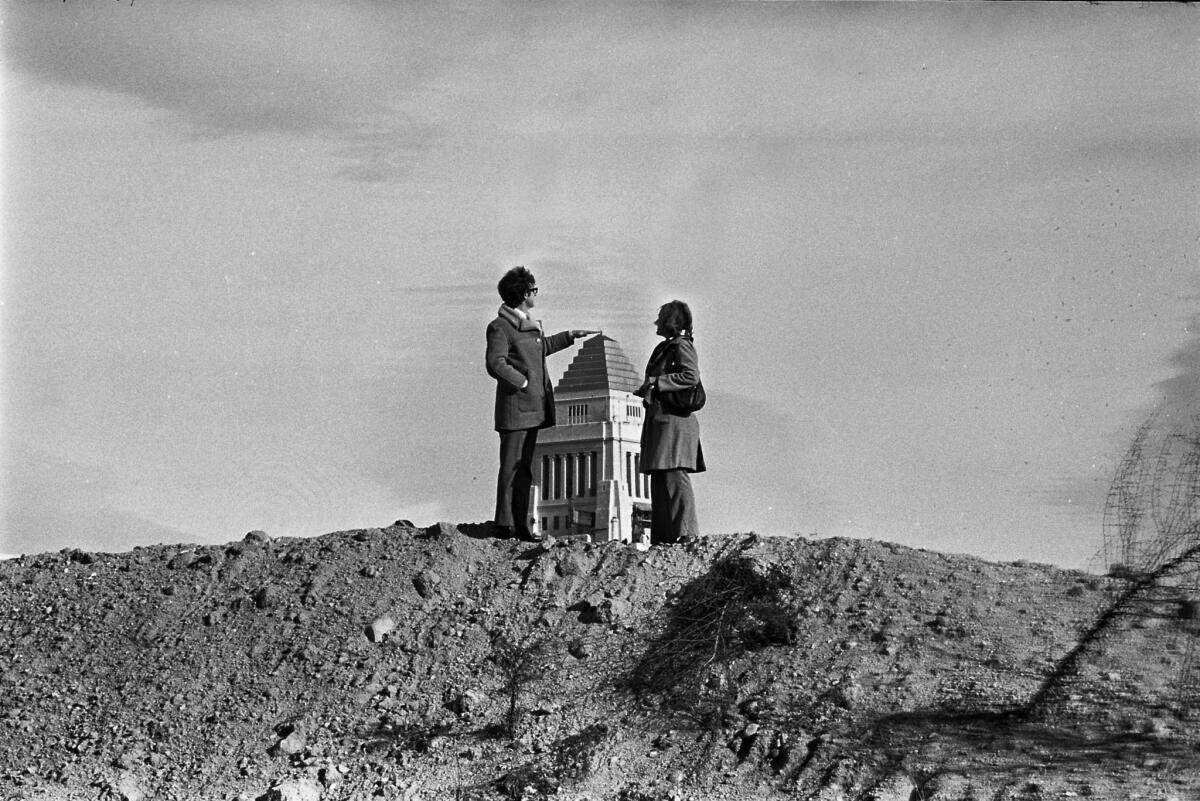Post-diversity, post-sprawl: D.J. Waldie’s response to how we talk about Los Angeles

Standing on a mound in Bunker Hill, a couple plays with perspective and the architecture of City Hall in the distance sometime in the fall of 1973.
- Share via
A couple of weeks back, I had an online conversation with writers D.J. Waldie, Josh Kun and Lynell George about how we look at Los Angeles -- or, more accurately, how we should be looking at Los Angeles in a way that goes beyond the fun-in-the-sun meets Hollywood tropes. (If you haven’t read it, there’s all kinds of juicy thinking about L.A. in it.)
See the most-read entertainment stories this hour >>
Waldie followed up with a thoughtful post over at KCET Departures on how to describe our city:
“We haven’t yet learned to speak the language of the Los Angeles that is coming. It’s a post-sprawl city, where ‘sprawl’ had been the cliched label for the city’s multi-centered urban form. It’s a post-diversity city, where ‘diversity’ talk is both a sign of Anglo anxiety about the new people living next door and a word of self-congratulation about not being too anxious. Los Angeles is post ‘middle-class’ as well, having been made into a city of struggling working-class aspirants below and a crust of oblivious wealth above.”
SIGN UP for the free Essential Arts & Culture newsletter >>
He offers other ideas, too -- discussing L.A. as a place of ordinariness of the unexceptional, of the “fantastically commonplace.”
I’d like to add one more: the idea of Los Angeles as “post-West.” Since this is, after all, where Latin America and Asia meet.
Be sure to check Waldie’s whole post over at KCET.
Twitter: @cmonstah
More to Read
The biggest entertainment stories
Get our big stories about Hollywood, film, television, music, arts, culture and more right in your inbox as soon as they publish.
You may occasionally receive promotional content from the Los Angeles Times.











